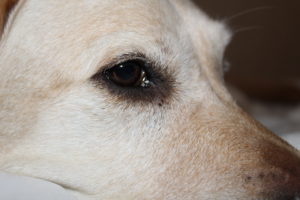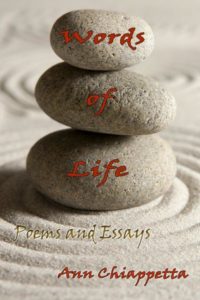This article was posted on the Recovering the Self blog, why not check it out?
https://www.recoveringself.com/travel/a-path-of-discovery.https://www.recoveringself.com/travel/a-path-of-discovery.
| Filed under blindness nonfiction recovering the self
This article was posted on the Recovering the Self blog, why not check it out?
https://www.recoveringself.com/travel/a-path-of-discovery.https://www.recoveringself.com/travel/a-path-of-discovery.
| Filed under nonfiction Poem recovering the self writing
Thanks to fellow editor and writer, Ernest Dempsey, I am sharing my first book review. I am so excited to be one of the many talented writers who benefits from and contributes to the Recovering the Self blog and content. Check it out:
https://www.bookcorner.us/more-than-a-memory-reflections-of-viet-nam/.
| Filed under blindness Poem Relationships Writing Life
I began writing poetry in earnest after finding out I was going blind, in the early 1990s. Looking back, the poems I wrote during this dark time was a way to cope with the inevitable grief and loss I felt, and would feel, for a long time. Progressive vision loss infiltrates one’s sense of hope and resiliency,
Two emotional Aspects Which Appear in many of the poems written from the 1990s. The poems are also an inventory of sorts, and, as I become reacquainted with them, I am, in turn, becoming acquainted with my feelings and emotions during this time of fear, depression, and anger. I also discovered I’ve grown beyond these feelings and emotions and have learned to accept my disability and embrace the creativity and how much healing I’ve done since then.
Here is a song I found, written for a friend (really).
The Child Inside
Song lyrics
By Ann Chiappetta
family devotion died
the day he went away
The child inside
still cries when you sleep
The pain
makes you feel incomplete
He’s made a mess of your memories
He can’t come back into your life
And though you deny it
the reality cuts Like a knife
The child inside
still cries when you sleep
The pain
makes you feel incomplete
Don’t try to replace him
Sometimes lovers walk away, too;
discover why your heart
desires demons dressed in blue
The child inside
still cries when you sleep
The pain
makes you feel incomplete
2000
| Filed under blindness Guide dogs Relationships Writing Life
 Working with a guide dog brings along perks, like being offered the aisle seat at events, being given the extra leg room seats on trains, and pre-boarding when flying. These, of course, are the obvious advantages.
Working with a guide dog brings along perks, like being offered the aisle seat at events, being given the extra leg room seats on trains, and pre-boarding when flying. These, of course, are the obvious advantages.
I would most likely be presented with most of these as a white cane user when traveling without a guide dog, although, perhaps the extra leg room seats would not be part of it. Traveling with a disability can be challenging enough, thank-you.
My dog guides me safely while also assisting in softening the stressors of traveling. A dog also helps with engaging in social events.
A few of the little-known perks are humorous, along with being practical. For instance, my dog, like many other guide dogs, is an expert at finding friends and family during parties and in crowds. Both my current dog and my retired dog have found my husband or other guide dog users countless times. They are creatures of habit and will most likely show the handler familiar locations and individuals. I think of it as, “Hey, is this the door you want? Or Hey, we know this person, maybe you want to talk to them again so I can say hi to their dog?
The most recent time I recall being surprising as well as useful was during a convention. Upon exiting the elevator, Bailey began pulling harder and I knew he was on a mission. He brought me up to my friend and her new dog. The same friend who trained beside us for two weeks when I first got Bailey. It was very smart, for a dog. 😊 I didn’t even think he would remember her, but he did. We also had this sneaking suspicion Bailey and her new dog, (not the one who trained with us) and Bailey knew one another from the kennel, acting like old friends.
Some folks say being a guide dog user is too-time consuming, that it’s all about the dog, and the extra attention is difficult to manage. Personally speaking, I prefer the social and travel advantages my dog provides. It far outweighs the annoyances.

| Filed under blindness Guide dogs Relationships Writing Life
Today was the monthly meeting for the Westchester Council of the Blind of New York. We hold it at a house of worship, and we are very fortunate to be getting our space for free. While we were setting up and listening for members to come down the steps to our meeting room, a man appeared,
“Are you having a meeting for blind people?” he asked, sounding a little annoyed.
Yes, we said, this is where our meeting is.
“Oh,” he replied, “There are some people coming here, and they don’t seem like they know where to go, maybe you should put up a sign,”
Yup, folks, after he left, my colleague and I broke up laughing, then shook our heads, feeling quite sorry for the ignorant sighted person. We went to find our wayward members and led them to the room.
We could have felt angry, or upset, but this is nothing unusual for us. We did not allow this man and his inadequacies or annoyances to negatively affect us.
Furthermore, I don’t know how I can state this eloquently , but, well, a sign really won’t help the blind folks, only folks like this man, who came in, did not greet us or even introduce himself; by the way he sounded, he felt somehow threatened by the “blind people”, or he would have brought them with him instead of coming to the room to complain.
If you are still reading, this is more or less an average example of what we encounter from day to day. Sometimes we fair better, some days, the ignorance and uncaring attitudes seem to be everywhere. It’s no wonder 70% of employable blind people are not working; that people who lose vision and are over 50 struggle to remain independent; why guide dog users who are blind are denied ride share services 1 of 3 times despite policies adhering to the Americans with Disabilities Act laws.
We are a powerful group and yet we are a minority still grabbing and pulling ourselves up the wall of equal access and opportunity. We must help one another so we can be the change-makers, in our communities, Nationally, and worldwide.
Most importantly, don’t be like this man who did not say his name and was so off-putting with an attitude of annoyance; after reading this example, if you encounter someone who is blind, lost or looking for directions, work with them, ask how best to help, and go with it.
| Filed under blindness Guide dogs
Being a guide dog handler is probably the best choice I’ve made since going blind. It gives me much more than just a canine partner and increased safety. Sometimes it even brings comic relief.
A few months ago, I left work and walked around the corner to relieve my guide dog, Bailey. We began the usual routine, and then he started to do something odd, he lay down. I bent to try to make sure he wasn’t eating anything, and, being a Labrador, he sure was munching on something. I pulled him away and made him spit it out but he’d already swallowed it. I needed to know what was all over the sidewalk, so I got out my phone and called AIRA. The agent identified the scattered items through the camera on my mobile phone as French fries, to my relief. If Bailey was going to be corrected for temptation, I needed to know what had done the tempting. The agent’s quick and accurate scan of the area confirmed it was something that would not cause Bailey any harm. This helped me breathe a sigh of relief; it was only a few French fries. We could deal with it.
This is also a reminder that while Bailey has an advanced canine degree as a guide dog, he is still a dog and will give into temptation. The counterbalance to this is knowing that when he does his job, when he pulls us from a driver turning right on red as we try to cross a street, or when he shoves me away from the speeding bicyclist hurtling down the sidewalk, a few French fries is acceptable.
| Filed under blindness Guide dogs Poem Relationships Writing Life
| Filed under writing
SAVE THE DATE! When? September 26, 2019. 6 PM Central.
What? Annie Chiappetta will be discussing her new book, Words of Life: Poems and Essays.
Where? On Disability and Progress, heard at KFAI 90.3
disability
Can’t make it for the live show? No worries. Catch the archived broadcast at: http:www.kfai.org/disabilityandprogress
For the local literary-minded, come listen to a reading followed by a book signing.
October 8 at 7 p.m. I will be performing poetry from my latest book, Words of Life: Poems and Essays at the White Plains Public Library. All three books will be for sale, cash only. To find out more, click the link:
https://whiteplainslibrary.org/2019/09/meet-author-ann-chiappetta/

| Filed under blindness Writing Life
The urge to take everything and leave was hard to fight after receiving the first letter, a two-week notice without it being labeled as such. Packing my belongings into shopping totes and cleaning my office of personal items was the only action I could take while awaiting the final letter and day. I was being removed, a most ironic clinically sterilizing verb, as if being diagnosed a malignancy. Treating me like a diagnosis rather than a person probably insulated the District team from feeling any remorse.
While I struggled to keep myself from crying, I sat while the director read the final decision letter to me. It was only two pages. The rest, he said, would be coming in the mail to my home. I wasn’t given time to take it in, maybe that was a good thing, because I left without telling anyone. I was able to call my husband and with only one extra trip to the truck, I dropped my keys, I.D. and agency mobile on my desk and left.
| Filed under blindness Guide dogs Poem Writing Life
Ann Chiapetta Update – Wednesday August 7th 10:30PM Eastern/7:30PM Pacific (and replays every two hours throughout the next day)
ACB member and author Ann Chiapetta rejoins us. She’s going to tell us about one of her brand spanking new publications and give our listeners who want to be authors some guidance.
To listen to this week’s “Speaking Out for the Blind,” go to: http://acbradio.org/mainstream, and choose one of the links under the headings “Listen to ACB Radio Mainstream” and “Now Playing;” or call 1-641-793-0756, and when prompted, press “1” for ACB Radio Mainstream. You may also listen to the program live on the ACB Link mobile app. For more information, go to http://link.acb.org.